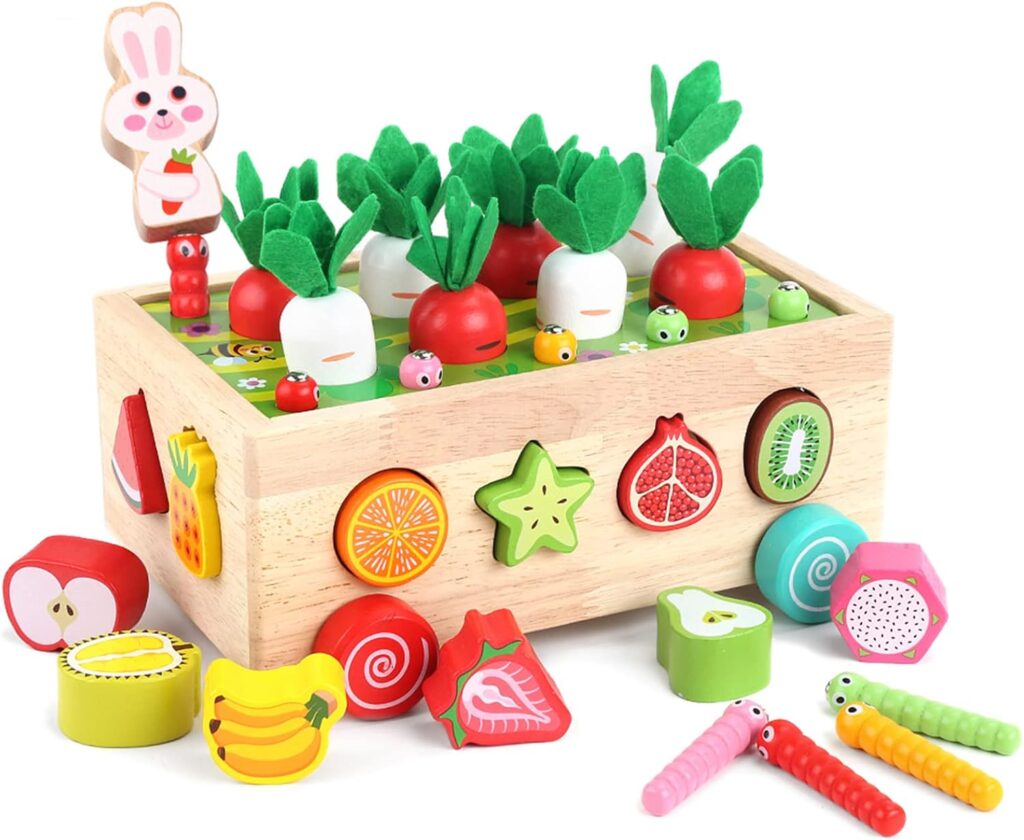Educational toys have become an essential part of modern learning, helping children develop critical thinking, problem-solving abilities, and creativity. These toys go beyond simple entertainment; they serve as tools that stimulate various areas of the brain and enhance overall cognitive growth. By engaging children in meaningful play, educational toys create opportunities for exploration, curiosity, and active learning.
Understanding Cognitive Skills and Their Importance
Cognitive skills are the mental abilities that help individuals process information, think logically, remember facts, and apply knowledge to solve problems. They are the foundation of learning, affecting how children understand concepts in school and everyday life. These skills include attention, memory, reasoning, perception, and problem-solving.
During the early stages of childhood, the brain is highly adaptable and responsive to external stimuli. Educational toys play a significant role in this phase by providing interactive and stimulating experiences. Through play, children naturally develop essential cognitive skills that lay the groundwork for academic success and personal growth.
How Educational Toys Enhance Cognitive Development
Encouraging Problem-Solving and Critical Thinking
One of the most significant ways educational toys promote cognitive skills is by encouraging children to solve problems independently. Puzzles, building blocks, and logic games challenge young minds to analyze situations, think creatively, and find solutions. As they experiment with different possibilities, children learn to make decisions, evaluate outcomes, and improve their reasoning skills.
For instance, when a child works on a jigsaw puzzle, they must analyze the shapes, colors, and patterns to find matching pieces. This process enhances spatial awareness, attention to detail, and perseverance — all crucial cognitive abilities.
Stimulating Memory and Concentration
Educational toys such as memory cards, matching games, and sequencing toys help strengthen short-term and long-term memory. When children play these games, they practice recalling images, numbers, or patterns, which enhances their memory retention.
Additionally, such activities improve focus and concentration. As children stay engaged with the game to achieve a goal, they develop the ability to pay attention to details for extended periods. Over time, this improved attention span translates into better performance in academic and social settings.
Enhancing Language and Communication Skills
Many educational toys are designed to promote language development. For example, alphabet blocks, talking toys, and story-based games introduce children to new words and encourage verbal expression. When children describe their actions or explain the rules of a game, they practice communication and vocabulary building.
Interactive toys that involve storytelling or role-playing also support comprehension and listening skills. By expressing their thoughts and responding to others, children enhance their cognitive ability to understand context and meaning.
Promoting Logical and Mathematical Thinking
Toys that involve counting, sorting, or pattern recognition foster logical and mathematical reasoning. Educational toys like abacuses, number puzzles, and stacking games introduce basic arithmetic concepts in a playful way.
When children sort objects by color or shape, they learn classification and sequencing — essential elements of logical thinking. Similarly, construction sets and building toys develop spatial reasoning and an understanding of geometry. These foundational skills support early numeracy and prepare children for more complex math concepts in school.
The Role of Play in Cognitive Growth
Play is one of the most effective ways for children to learn. Educational toys turn playtime into a learning experience, combining fun with intellectual development. Through hands-on activities, children explore cause-and-effect relationships, test hypotheses, and build confidence in their problem-solving abilities.
When play is self-directed, children become active learners rather than passive observers. They learn from trial and error, make discoveries, and develop persistence when faced with challenges. These experiences nurture curiosity, motivation, and a lifelong love for learning.
Different Types of Educational Toys and Their Cognitive Benefits
Building and Construction Toys
Building blocks, LEGO sets, and magnetic tiles enhance spatial reasoning, hand-eye coordination, and creativity. They encourage children to visualize structures, plan their designs, and think critically about stability and balance. These toys are especially effective in developing problem-solving and logical skills.
Puzzle and Board Games
Puzzles and strategic board games help children improve memory, focus, and reasoning. They require planning, predicting outcomes, and making decisions. Games such as chess or memory-matching cards train the brain to think ahead, analyze situations, and respond strategically.
STEM-Based Educational Toys
STEM (Science, Technology, Engineering, and Mathematics) toys are designed to introduce complex concepts through simple, engaging activities. Examples include science kits, coding robots, and electronic circuit games. These toys promote analytical thinking, innovation, and technical understanding — vital skills for the modern world.
Language and Literacy Toys
Toys that involve letters, words, and sounds improve communication and literacy. Story cubes, talking books, and phonics toys help children recognize sounds and form words. They also strengthen comprehension, vocabulary, and the ability to express ideas clearly.
Art and Creative Toys
Creative educational toys like modeling clay, art sets, and musical instruments boost imagination and emotional expression. They engage both the creative and analytical sides of the brain, supporting cognitive flexibility and fine motor development.
Social and Emotional Benefits That Support Cognitive Growth
Educational toys not only build mental abilities but also foster social and emotional intelligence. When children play together, they learn cooperation, patience, and empathy. These interactions improve communication and teach children to interpret social cues.
Collaborative play with educational toys also promotes teamwork and conflict resolution — vital components of cognitive and emotional maturity. As children discuss ideas, share resources, and negotiate outcomes, they develop reasoning and perspective-taking skills.
The Role of Parents and Educators
Parents and educators play a vital role in maximizing the benefits of educational toys. By selecting toys that match a child’s developmental stage and interests, adults can create engaging learning environments.
It is essential to encourage exploration rather than providing immediate solutions. Asking guiding questions like “What do you think will happen if…?” or “How can we make this work differently?” promotes deeper thinking and independent problem-solving.
Adults should also participate in play, providing support while allowing the child to take the lead. This balance fosters confidence and reinforces cognitive learning through shared experiences.
Choosing the Right Educational Toys
Selecting suitable educational toys depends on age, developmental goals, and learning preferences. Toys for toddlers should focus on sensory exploration, while older children benefit from logic-based and STEM-focused activities. Safety, durability, and engagement are also key factors to consider.
Look for toys that challenge but do not frustrate the child. The goal is to inspire curiosity and promote gradual mastery of new concepts. Combining different types of educational toys — puzzles, creative sets, and problem-solving games — provides a well-rounded cognitive experience.
Conclusion
Educational toys are powerful tools that support a child’s intellectual, emotional, and social growth. By engaging children in active learning, they enhance problem-solving, memory, creativity, and logical reasoning. These toys make learning enjoyable and interactive, helping children develop skills that will benefit them throughout life.


